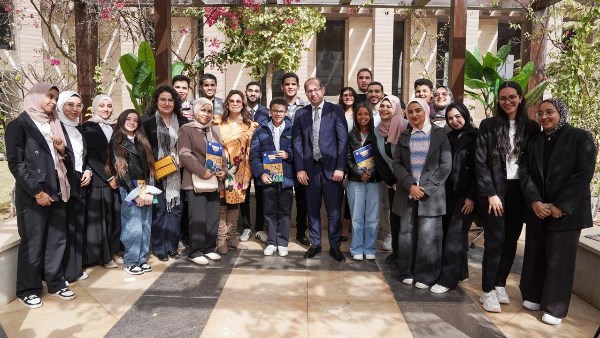Cop28'green energy to face%160 increasing in public money flowing into fossil fuel

The International Institute for Sustainable Development (IISD) thinktank، announced، this week، ahead of a meeting of G20 countries in India next month that could set the tone for Cop28، which takes place in the United Arab Emirates in November، that the amount of public money flowing into fossil fuel such as coal، oil and gas in 20 of the world’s biggest economies rose by %160 in just 3 years to reach a record $1.4 trillion in 2022 even though the world leaders agreed to pour more investments into green energy.

The International Institute for Sustainable Development (IISD) experts found that the spending of the 20 of the world’s biggest governments rose 160 % from $500 billion in 2020 to $1.4 trillion in 2022 as they rushed to mitigate the inflationary impact of Russia’s invasion of Ukraine and the spike in demand caused by the economic recovery from Covid-19، even though their leaders agreed to increase investments into green energy and phase out inefficient traditional fuel subsidies at the Cop26 climate summit in Glasgow two years ago and Cop27 in Egypt last year.
The fossil fuel subsidies should be on Cop28 agenda
Tara Laan، senior associate with the International Institute for Sustainable Development (IISD) and lead author of the report confirmed that it is crucial that leaders of the 20 of the world’s biggest governments put fossil fuel subsidies on the agenda at the next big climate conference، Cop28، which takes place in the UAE in November، while these figures are a stark reminder of the massive amounts of public money G20 governments continue to pour into fossil fuels، despite the increasingly devastating impacts of climate change and their promise to encourage green energy.

Governments around the world are failing to deliver on promises to wind down fossil fuel subsidies، even as climate change impacts worsen and public money still flowing into industry despite agreement to phase out inefficient subsidies that the G20 poured record levels of public money into fossil fuels last year despite having promised to reduce some of it so as to enhance green energy.
The International Institute for Sustainable Development (IISD) founded in 1990
The International Institute for Sustainable Development (IISD) is an independent think tank founded in 1990 working to shape and inform international policy on sustainable development governance، and it has three offices in Canada: Winnipeg، Ottawa، and Toronto، and one office in Geneva، Switzerland.

Despite repeated government around the world pledges to cut back on fossil fuel subsidies، a new report by the International Institute for Sustainable Development (IISD) experts found such subsidies surged to a record last year and those subsidies are direct monetary support for fossil fuels through activities like regulated prices set below international levels and energy bill rebates.
Allocating more investments into green energy
The International Institute for Sustainable Development (IISD) report revealed that the COP28 in Dubai، intends to evaluate progress towards achieving the goals of the Paris Agreement and increase national ambitions to speed up climate action by allocating more investments into green energy and decreasing public money into fossil fuels.

This report is the International Institute for Sustainable Development (IISD) study to assess global progress made on shifting public finance flows from fossil fuels toward green energy as the fuel subsidies have continued to rise since 2015 to exceed USD 1 trillion last year for the first time and provides recommendations to help overcome challenges to shifting public financial flows towards clean energy.
Phasing out inefficient traditional fuel subsidies
The International Institute for Sustainable Development (IISD) report indicated that shifting G20 fossil fuel spending could install enough renewables and green energy while phase out inefficient traditional fuel subsidies to align with 1.5°C while tackling global hunger، energy access gaps، and more.

The International Institute for Sustainable Development (IISD) report discovered that G20 members spent more than USD trillion to support fossil fuels and could raise an additional USD 1 trillion per year by establishing a carbon tax floor in order to help solve some of the most pressing global issues، especially green energy.
Fossil fuel-related air pollution، responsible for over 5 million deaths per year
The study of the International Institute for Sustainable Development (IISD) emphasizes the active role that needs to be played by state-owned enterprises، which dominate the energy landscape in many G20 member countries، and public financial institutions، which engage in considerable lending to fossil energy projects as removing subsidies could also save thousands of lives by reducing fossil fuel-related air pollution، which is responsible for over 5 million deaths per year in G20 members and one in five deaths globally

The International Institute for Sustainable Development (IISD) experts sees that governments should، in particular، set a deadline for these state-owned institutions to create ambitious net-zero roadmaps that will allow them to diversify their businesses and lending portfolios and avoid the risks inherent in continued investments in fossil fuels but with fossil fuel companies gaining record profits amid the energy crisis last year، there is little incentive for them to change their business models in line with what’s needed to limit global warming and governments have the power to push them in the right direction.
G20 members spending more than double the pre-COVID-19 level
The International Institute for Sustainable Development (IISD) explained that G20 members spending includes fossil fuel subsidies (USD 1 trillion)، investments by state-owned enterprises (USD 322 billion)، and lending from public financial institutions (USD 50 billion) and it is more than double the pre-COVID-19 and pre-energy crisis levels of 2019.

The International Institute for Sustainable Development (IISD) experts assured that green energy is more safe as fossil fuels release pollutants when burned that heat the planet and make extreme weather more violent، dirty the air with toxins that damage people’s lungs and other organs، and scientists estimate the air pollution from fossil fuels kills between 1 and 10 million people each year، while beyond the overlooked costs to society، governments have lowered prices further by supporting fossil fuel producers and their customers with public money.

Scientists and doctors have long warned of the dangers of subsidising fossil fuels that kill people while also blocking efforts to clean up economies and green energy، as well as energy experts and economists have joined the chorus of voices calling fossil fuel subsidies to shrank and to be concerned by the G20 governments summit next month as it is crucial for the bloc to put fossil fuel subsidies on its agenda and take meaningful actions to eliminate all public financial flows for coal، oil، and gas.








-1120252475029447.jpg)















